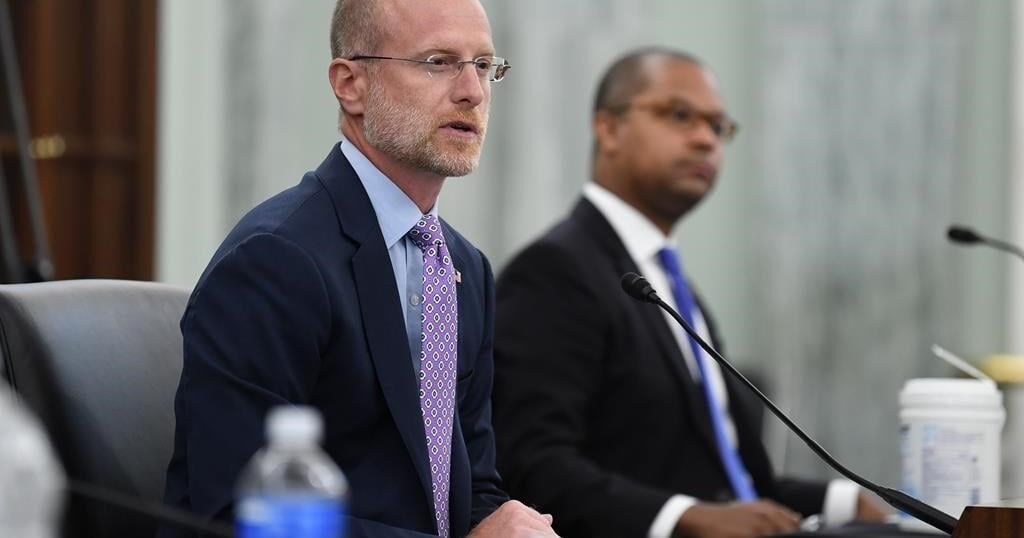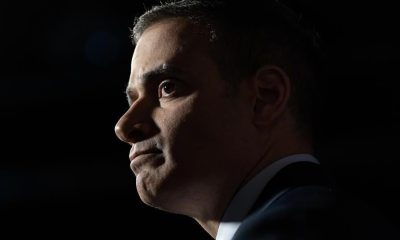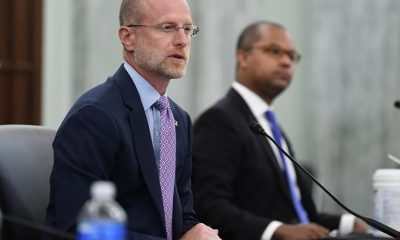BCE Inc.’s share price took a hit in midday trading on Monday after the company announced it has signed a deal to buy U.S. fibre internet provider Ziply Fiber for about $5 billion in cash.
Shares in the company were trading at $40.37, down $4.44 or around 9.9 per cent.
BCE said Monday the deal will extend Bell’s fibre footprint to the United States, adding approximately 1.3 million fibre locations.
In addition to the purchase price, BCE will assume about $2 billion in net debt as part of the transaction.
“This acquisition marks a bold milestone in Bell’s history as we lean into our fibre expertise and expand our reach beyond our Canadian borders,” BCE chief executive Mirko Bibic said in a statement.
“By bringing together Bell and Ziply Fiber’s exceptional talent, we’ll accelerate our growth while continuing to deliver significant value for our customers and shareholders.”
Based in Kirkland, Wash., Ziply Fiber offers fibre internet service in the U.S. Pacific Northwest, including Washington, Oregon, Idaho and Montana.
“This acquisition enhances our growth strategy with the scale and experience of one of North America’s leading fibre operators,” Ziply Fiber chief executive Harold Zeitz said.
Once the deal has closed, Ziply Fiber is expected to operate as a separate business unit and will continue to be headquartered in Kirkland.
BCE said it will use about $4.2 billion in net proceeds from the sale of its stake in Maple Leaf Sports & Entertainment to help pay for the deal.
The company also said it plans to pause dividend growth until its dividend payout and net debt leverage ratios are tracking toward its target policy ranges.
Scotiabank analyst Maher Yaghi called the move “perplexing” for BCE, noting the costs to load customers, along with capital expenses, are high for fibre operators in the U.S.
“Investors in Canadian telecom are in the sector for dividends and not in it to get growth; they can get it elsewhere,” Yaghi said in a note.
He compared the transaction with Verizon Communications Inc.’s announcement in September that it would acquire fibre internet provider Frontier Communications in a US$20-billion deal.
Verizon said at the time that the deal would add 2.2 million fibre subscribers and extend its network reach to 25 million premises across 31 states and Washington, D.C.
“Convergence is the big theme in the U.S. currently. It will be interesting to see how BCE will supplement its acquired business to sell converged services,” Yaghi said.
“We certainly understand the impetus by Verizon to acquire Frontier given the geographic overlap on wireless but are having a hard time seeing the same potential synergistic potential with BCE’s move at this time.”
BCE’s acquisition is expected to close in the second half of 2025, subject to customary closing conditions and regulatory approvals.
While the transaction seems “expensive at first glance,” Desjardins analyst Jerome Dubreuil noted it involves “what appears to be a high-quality asset,” with BCE likely motivated by the need to boost telecom growth long-term.
“BCE is reinforcing its position as a North American fibre leader and will look to accelerate growth by gaining exposure to a new fibre-building platform in a market where customer penetration lags that in Canada and with a long runway of deployment potential,” Dubreuil said.
But he added the move likely sends a “negative signal” when it comes to Canadian telecom prospects, as BCE and its two largest competitors, Rogers Communications Inc. and Telus Corp., have directed “a large portion of recent investments away from the sector.”
BCE has previously outlined its intention to cut spending on its fibre network build in Canada in response to regulatory decisions it opposes.
In particular, the company said last year it would reduce its network spend by $1.1 billion in 2024 and 2025. That came in response to the CRTC’s mandate for large telephone companies that own fibre internet networks to give competitors access to their networks for a fee.
Bell has said that direction diminished the business case for it to invest in its domestic network.
This report by The Canadian Press was first published Nov. 4, 2024.
Companies in this story: (TSX:BCE)
























